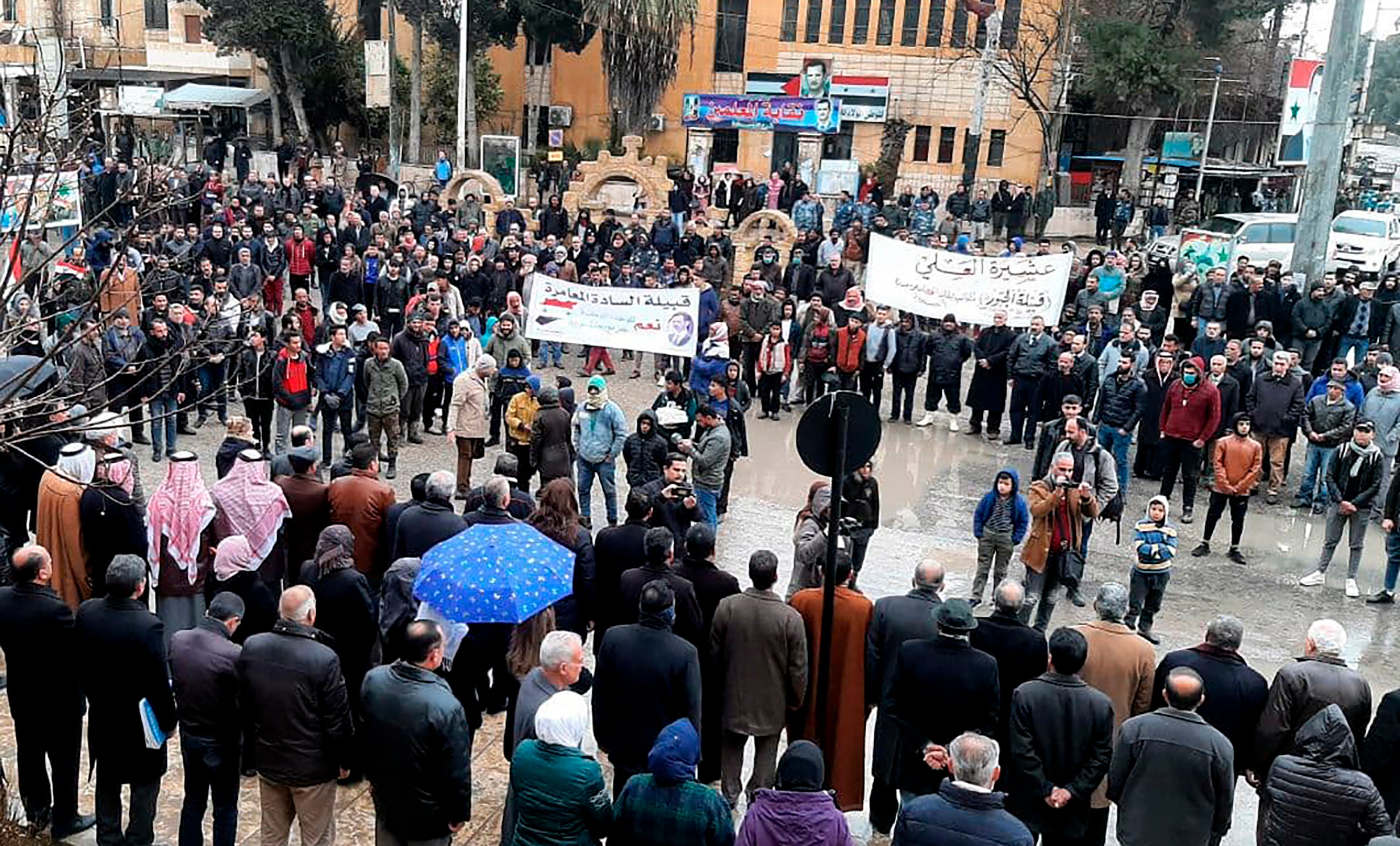Kurds end siege of government-held areas in northeast Syria
Kurdish forces in northern Syria have ended a weekslong siege on government-held neighborhoods in two northeastern cities

Kurdish forces in northern Syria ended a weekslong siege of government-held neighborhoods in two northeastern cities Tuesday, they said, two days after Kurdish fighters shot one person dead during a pro-government protest.
Local Kurdish police said in a statement they would end the siege on government-held parts of the provincial capital of Hassakeh province that carries the same name as well and the city of Qamishli along the border with Turkey.
Areas held by the government in Hassakeh and Qamishli are known as the security square. State institutions still function in the areas despite the fact the U.S.-backed Kurdish-led fighters control much of the region.
The Kurds Syria’s largest ethnic minority, have carved out a semi-autonomous enclave in Syria’s north after the start of the civil war in 2011. In the area, the Kurds run their own affairs and control most of the country’s oil resources.
In both Hassakeh and Qamishli cities, they share control with government forces, which have a presence in security zones, near the airport and in some neighborhoods. Both cities have a sizeable Kurdish population.
“We at the Internal Security Forces are committed to the unity of Syrian blood,” the local Kurdish police force said, blaming government forces for tension in the cities. On Sunday, Kurdish forces shot dead a pro-government protester in Hassakeh during a demonstration against the siege.
The police force said life returned to normal on Tuesday with the siege lifted and material will be allowed to flow into government-held areas During the siege that lasted several weeks, Kurdish fighters prevented the flow of flour and fuel into government-held areas.
Tensions are not uncommon between the two sides in northern Syria and Kurdish officials have said their moves are in retaliation for a government siege on Kurdish areas in the northern province of Aleppo.
Kurdish fighters, who are backed and armed by the U.S. played an instrumental role in defeating the Islamic State group in Syria.
In March 2019, Kurdish fighters captured the eastern Syrian village of Baghouz that was the last sliver of land controlled by IS that once held large parts of Syria and Iraq.
The U.S.-led coalition still has forces in Kurdish-controlled areas in Syria, citing continued joint efforts to weed out the militants’ remnants. The presence of U.S. troops is another reason for tension between the Kurdish and government forces.
Bookmark popover
Removed from bookmarks